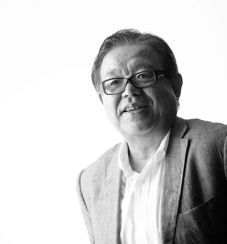While much of the early work was centered in the West, Dr. Murai stayed in close touch with pioneers like Vint Cerf, Jon Postel, Larry Landweber and David Farber, keeping Japan in the development loop and maintaining a strong voice for Asian stakeholders. For instance, he developed the first system that allowed Japanese characters to be used on global networks, and he came up with the first concept of country-specific domain names, or CCTLDs, now commonly used around the globe.
He was also an early advocate of creating the Internet Society, or ISOC, to make it easier for foreign governments to accept protocols and standards that were being driven by researchers in the United States. And he was a founding member of the Internet Corporation for Assigned Names and Numbers, or ICANN.

Dr. Murai’s ability to bridge cultural gaps was instrumental to the Internet’s global development, said David Farber, a U.S. professor who helped conceive and organize the National Science Foundation’s Computer Science Network (CSNet) and played a key role in developing many systems behind today’s global Internet.
“The thing that amazes me with Jun is how he can be bicultural,” said Dr. Farber. “Especially in the early days, when he was among Americans and others, it was almost hard to tell that he wasn’t brought up in the United States. But then you could put him in front of an Asian audience and the switch was thrown. So he was very effective on both sides. … His command of English and his ability to switch was incredibly valuable.”
Dr. Murai admits it wasn’t easy. A Wired article from 1994 describes some of the struggles he faced as the freewheeling Democratic style of Internet pioneers clashed with Japan’s authoritarian culture, which was worried about how the Internet would impact existing telecommunications networks and businesses.
But rather than become entangled in long-running debates on regulations, protocols and policy, Dr. Murai, and some fellow graduate students in the early 1980s set about laying cable and developing – without any government support – a dial-up service called JUNET, the first-ever inter-university network in Japan. The network became widely popular with academics craving email, the article notes. And the academics loved being able to enter Japanese characters.
The network evolved, eventually in 1988 becoming part of the Widely Integrated Distributed Environment Project, which operated on the TCP/IP protocols that had become the de facto standard for most of the world.
Dr. Murai’s diligence and commitment to working with the Internet’s early founders to develop Japan’s global Internet connection while the country’s leaders had established – and were debating – separate protocols, is widely credited with ensuring Japan was connected to and involved in the early stages of Internet development.
His independence and refusal to bow to the system is also credited with helping change the country’s Internet culture.
“They never understood that the Internet community was going to be free,” he said. “They worried that existing business was going to be destroyed. … Even today there is the old debate about why the Internet organization should be located in the United States.”
To ease tensions in Japan and other countries, he said he encouraged Vint Cerf and other Internet founders to create an international body to help deploy the Internet globally, and to ease concerns by other countries about its U.S.-based roots.
“I kept saying that,” Dr. Murai said. “In 1991, Vint came to me and said they were planning the ISOC (Internet Society) as an umbrella organization. They said, ‘Jun, do you think it’s going to help?’ I was thinking that Japan kind of came as a first trial. I really hoped that by following this, other countries joining the Internet would not suffer the extreme difficulties that I experienced.”
Besides pushing to ensure Japanese characters and other languages could be used on the global networks, Dr. Murai was the first to propose creation of country code domains, or CCTLDs, such as ‘.ja,’ which are now commonplace.
Today, Dr. Murai serves as an advisor to governments and the prime minister. He has been dean of faculty of Environment and Information Studies of Keio University since October 2009, and is one of the country and region’s foremost Internet and networking technology and academic leaders.
“He’s been very much a motivator for cooperation across Asia,” Dr. Farber said.